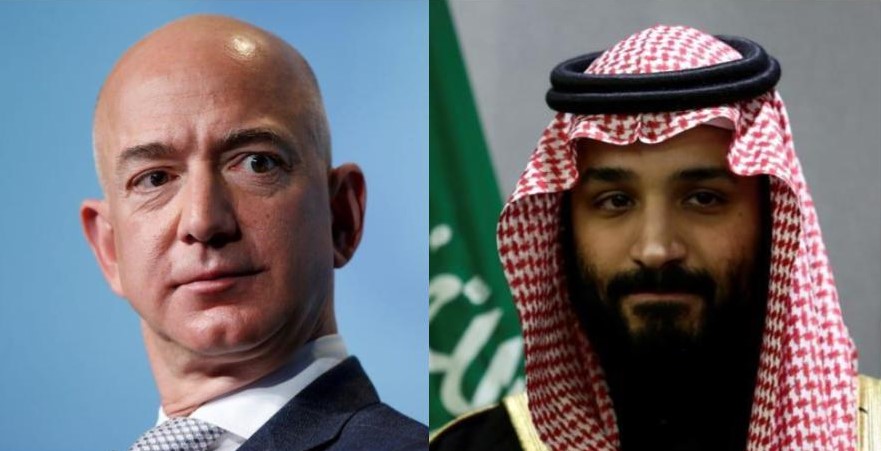
The European Saudi Organization for Human Rights believes that Saudi Crown Prince Mohammed bin Salman and his governmental apparatus is not only a domestic security risk to civil society, but has also become a security threat outside Saudi Arabia’s borders, affecting countries, individuals from Saudi Arabia, and many others.
On January 22, 2020, special rapporteurs from the Human Rights Council expressed their concern about information they received regarding Saudi Crown Prince Mohammed bin Salman’s violation of international human rights standards by deploying digital spyware enabling surveillance of The Washington Post owner and Amazon CEO, Jeff Bezos.
Agnès Callamard, the Special Rapporteur on extrajudicial, summary, or arbitrary executions, and David Kaye, the Special Rapporteur on the promotion and protection of the right to freedom of opinion and expression, issued a report indicating that they had received information suggesting bin Salman’s possible involvement in surveillance of Bezos in order to influence or silence The Washington Post’s reporting on Saudi Arabia.
The report goes on to say that this hacking demands immediate investigation by the US and other relevant authorities of the Crown Prince’s involvement in efforts to target opponents, as well as the murder of Khashoggi.
The rapporteurs believe that this surveillance—via software developed and marketed by a private company and transferred to Saudi Arabia without judicial control—is a concrete example of the harms that result from the marketing and sale of spyware. This affirms the importance of controlling these programs and protecting against their misuse.
The report states that when Saudi Arabia was supposedly investigating the murder of Mr. Khashoggi and prosecuting those responsible, it was secretly launching a massive online campaign against Mr. Bezos, targeting him principally as the owner of The Washington Post, which has had a prominent media role and influence in reporting on the criminal killing of Khashoggi.
The rapporteurs, who received a forensic technical analysis, asserted that Saudi Crown Prince Mohammed bin Salman hacked Bezos’s phone by sending him a video file on WhatsApp.
The analysis indicates that the alleged hack occurred through Pegasus-3, a program that had reportedly been used previously by Saudi Arabia and was purchased by Saudi officials.
The rapporteurs explained that these allegations are reinforced by other evidence confirming the targeting of opponents through similar programs. For instance, the United States has brought criminal proceedings against two Twitter employees for helping Saudi officials access the private data of users, including dissidents.
The rapporteurs added that the hack of Bezos’s phone occurred in the same period, May-June 2018, in which the phones of two close associates of Jamal Khashoggi, Yahya Assiri and Omar Abdulaziz, were also hacked.
The report notes that, during this same period of time, Mr. Bezos became the target of a massive, clandestine online campaign on Saudi social media as an alleged adversary of Saudi Arabia. The rapporteurs go on to say that Saud al-Qahtani, named by the Saudi prosecutor as having orchestrated the kidnapping of Khashoggi, was repeatedly linked with organizing the internet campaign calling for a boycott of Bezos and The Post.
The rapporteurs expect to continue the investigations into responsibility for the murder of Mr. Khashoggi and the growing role of the unaccountable use of spyware to intimidate journalists, human rights activists, and owners of media outlets.
ESOHR believes that Mohammed bin Salman’s repeated, ongoing, and runaway abuses and crimes against humanity are the result of his complete control over the Saudi judiciary and the absence of effective international capabilities to investigate and prosecute him or resolutions to deter him.
While the Crown Prince’s brazen behavior continues to affect security, we believe that there is ongoing protection of the Crown Prince by those who are benefitting economically, first and foremost the administration of the American president, Donald Trump, as well as some European allies. This reassures him that there will be no international stance to deter him from his abuses and reckless actions.
The initiation of new international mechanisms vis-à-vis Saudi Arabia, such as the appointment of a special rapporteur in the Human Rights Council with the role of permanent monitoring and ongoing pressure, has become very important in light of Saudi Arabia’s clear disregard for international human rights law.
